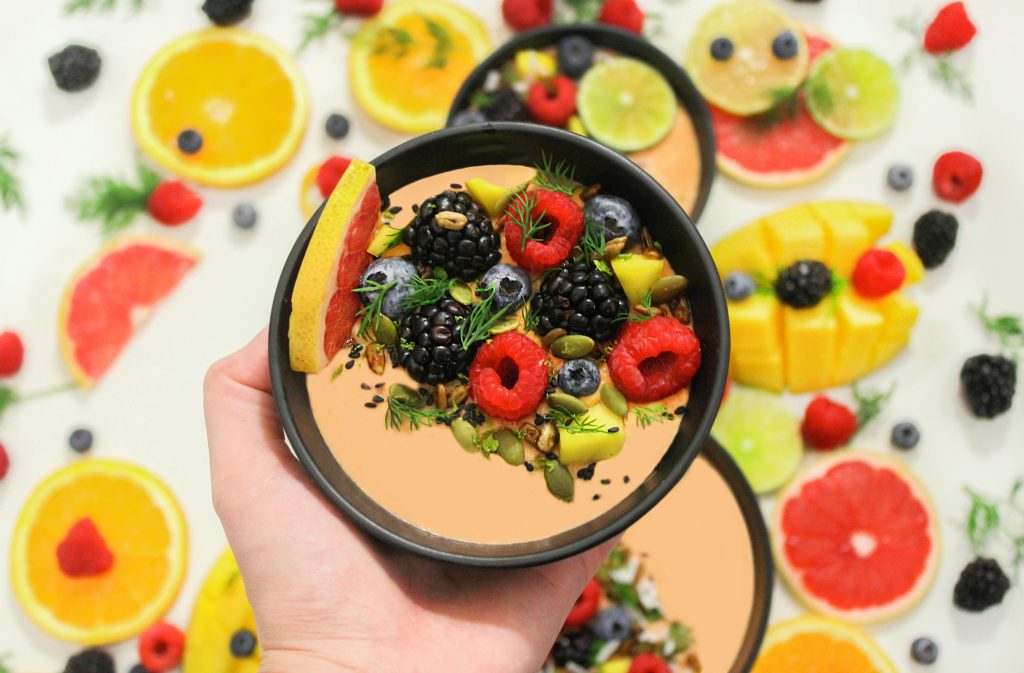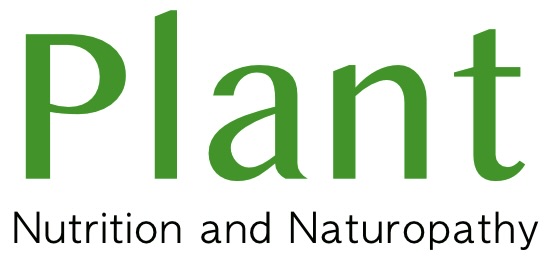Preconception Nutrition to Promote a Healthy Pregnancy
When preparing for a healthy pregnancy, preconception care often involves reviewing medical history, managing chronic conditions, and adopting a healthy lifestyle. A whole food plant based diet, rich in fruits, vegetables, whole grains, legumes, nuts, and seeds, can support optimal health before pregnancy. Whole food plant based eating can be an excellent choice for preconception care, supporting fertility, and promoting a healthy pregnancy.

What is a Whole Food Plant Based Diet?
A whole food plant based diet emphasises foods derived from plants and eating these as close to their original unprocessed form as possible. This doesn’t mean you need to be a strict vegetarian or vegan, but rather, you focus on eating a variety of plant foods while minimising animal products. A whole food plant based diet is typically rich in:
Fruits and Vegetables – Packed with vitamins, minerals, fibre, and antioxidants.
Whole Grains – Such as brown rice, quinoa, oats, and barley, which provide essential nutrients and fibre.
Legumes – Beans, lentils, and peas, which are great sources of protein and iron.
Nuts and Seeds – Offering healthy fats, protein, and vital nutrients like zinc and magnesium.
When well planned, whole food plant based eating provides all the essential nutrients needed for both preconception health and early pregnancy.
Why is Whole Food Plant Based Eating Important for Preconception Care?
1. Promoting Fertility
Maintaining a healthy diet before conception can help balance hormones and improve fertility. Whole Food Plant Based foods are rich in antioxidants (like vitamins C and E) and anti-inflammatory compounds, which may support fertility by reducing oxidative stress and promoting healthy hormone levels. A study by Chavarro et al. (2018) found that consuming a diet high in plant based foods and low in animal fats can improve fertility in women and men alike.
For women, a diet rich in antioxidants from fruits and vegetables can help protect eggs from oxidative damage, while for men, plant based foods may improve sperm quality and motility (Agarwal et al., 2012).
2. Managing Weight
Weight management is another critical component of preconception care. Being overweight or underweight can affect your menstrual cycle and fertility. A plant based diet, which is high in fibre and low in unhealthy fats, can help maintain a healthy weight. Research has shown that plant based diets tend to be lower in calorie density and higher in nutrients, making them a good choice for weight management (Davis & Melina, 2014).
3. Nutrient-Rich for Both Mother and Baby
When preparing for pregnancy, it’s important to ensure you are getting adequate amounts of essential nutrients. A plant based diet can provide a rich variety of vitamins and minerals necessary for reproductive health and the early stages of pregnancy. Key nutrients to focus on when eating plant based include:
Folic Acid (Folate): This is a crucial nutrient for preventing neural tube defects in the developing baby. Leafy greens, legumes, and fortified grains are excellent sources of folate (Sánchez et al., 2016).
Iron: Plant based sources of iron, such as lentils, beans, tofu, and spinach, are important for maintaining healthy red blood cells and preventing iron-deficiency anaemia, which can lead to complications during pregnancy (Zhao et al., 2019).

Calcium: Plant based sources such as fortified plant milks, tofu, broccoli, and almonds are great alternatives to dairy for building bone health (Melina et al., 2016).
4. Reducing Exposure to Harmful Toxins
A whole food plant based diet can help reduce exposure to harmful chemicals, such as pesticides, heavy metals, and hormone disruptors that may be found in some animal products. Studies have shown that plant based diets are typically lower in exposure to contaminants like dioxins and polychlorinated biphenyls (PCBs), which can be linked to fertility issues and developmental problems (Kessler et al., 2013). By prioritising organic produce and whole plant foods, you can reduce your intake of harmful substances, creating a more optimal environment for conception.
How to Adopt a Whole Food Plant Based Diet for Preconception Care
If you’re considering adopting a plant based diet to prepare for pregnancy, here are a few simple tips to get started:
1. Increase Whole Plant Foods
Start by adding more fruits, vegetables, whole grains, legumes, nuts, and seeds to your meals. Aim to make half of your plate vegetables and fruits at every meal. Try new recipes to incorporate more variety into your diet, such as vegetable stir-fries, grain bowls, and hearty bean soups.
2. Focus on Protein and Iron
Plant based protein is vital for reproductive health. Good sources include beans, lentils, chickpeas, tofu, tempeh, quinoa, and edamame. Pair iron-rich foods (like spinach, beans, and lentils) with vitamin C-rich foods (like citrus fruits, capsicum, and tomatoes) to improve iron absorption.
3. Ensure Adequate Vitamin B12
Vitamin B12 is primarily found in animal products as animals are given these to promote their growth. Unfortunately levels of these in our soil are relatively low, so if you’re following a plant based diet, consider taking a vitamin B12 supplement or consuming fortified foods such as plant based milks and cereals. Vitamin B12 is essential for cell division and the production of red blood cells (Melina et al., 2016).
4. Consider Omega-3 Supplements
If you’re not getting enough omega-3s from food sources like flaxseeds and chia seeds, consider supplementing with algae-based omega-3 supplements. Omega-3s are vital for reducing inflammation and supporting brain health in both mother and baby.
5. Consult a Healthcare Provider
Before making significant dietary changes, it’s a good idea to consult a healthcare provider, especially if you have existing health conditions or concerns. A registered clinical nutritionist can help ensure you’re meeting your nutritional needs and provide personalised advice on how to optimise your diet for fertility and pregnancy.

A whole food plant based diet can be an excellent choice for preconception care. By nourishing your body with nutrient-rich, whole plant foods, you can improve fertility, manage weight, and ensure that you are getting the essential nutrients needed for a healthy pregnancy. Additionally, a plant based diet can help reduce your exposure to harmful toxins, supporting both your health and your future baby’s wellbeing. If you’re considering plant based eating as part of your preconception care, remember to plan carefully, ensure you get all the essential nutrients, and seek guidance from a healthcare professional when needed.
References
Agarwal, A., Mulgund, A., Hamada, A., & Chyatte, M. R. (2012). Impact of lifestyle, environmental factors, and nutrition on male infertility. Urology, 79(3), 26-34. https://doi.org/10.1016/j.urology.2011.10.060
Chavarro, J. E., Rich-Edwards, J. W., Rosner, B. A., & Willett, W. C. (2018). Diet and lifestyle in the prevention of ovulatory disorder infertility. Human Reproduction, 23(6), 1156–1163. https://doi.org/10.1093/humrep/den051
Davis, B., & Melina, V. (2014). Becoming vegan: The complete guide to adopting a healthy plant-based diet. Book Publishing Company.
Kessler, D. A., & Benbrook, C. M. (2013). Agricultural chemicals and pregnancy. Environmental Health Perspectives, 121(8), 900-906. https://doi.org/10.1289/ehp.1206090
Melina, V., Davis, B., & Harrison, J. (2016). Becoming vegan: Express edition: The essential guide to a healthy plant-based diet. Book Publishing Company.
Sánchez, J., Loret de Mola, C., Rodríguez, J. C., & Sánchez, J. (2016). Folate and pregnancy. Journal of Nutritional Health & Food Engineering, 4(4), 234-238. https://doi.org/10.15406/jnhfe.2016.04.00111
Vannice, G. K., & Rasmussen, H. M. (2014). Dietary omega-3 fatty acids and cardiovascular risk factors: Systematic review and meta-analysis of randomized controlled trials. American Journal of Clinical Nutrition, 100(6), 1493-1503. https://doi.org/10.3945/ajcn.114.092451
Zhao, Z., Zhou, X., & Lin, Y. (2019). Iron deficiency in women: Implications for fertility. Journal of Nutrition and Food Sciences, 9(4), 1-9. https://doi.org/10.4172/2155-9600.1000748
